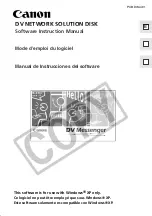
Table 6-4
Session security options
Description
Option
Protect the data stream, including the authorization
process, from eavesdropping and hacker attacks by
using strong encryption. Symantec pcAnywhere
supports public-key and symmetric types of strong
encryption.
When connecting with a host or remote that is
running pcAnywhere 11.0.x or earlier, either user can
deny a connection if the other is using a lower level
of encryption. If the connection is not denied,
pcAnywhere automatically lowers the encryption of
the computer with the higher encryption level to
match the encryption of the computer with the lower
encryption level.
When both the host and remote are running
pcAnywhere 11.5 or later, pcAnywhere automatically
raises the encryption of the computer with the lower
encryption level to match the encryption of the
computer with the higher encryption level.
Strong encryption
Symantec pcAnywhere automatically secures logon
information by using symmetric encryption to encrypt
the user ID and password.
Logon information might not be encrypted if either
the host or remote uses a previous version of
pcAnywhere that is not configured to use symmetric
encryption.
Logon encryption
Protect the host from users who might inadvertently
forget to end a session by configuring the host to
disconnect if there has been no keyboard or mouse
input within a specified time limit.
Inactivity time limits for sessions
When applicable, limit the level of access that a caller
has to the host. pcAnywhere lets you restrict users
from performing certain functions on the host, such
as restarting the host computer, transferring files to
or from the host, cancelling the host, or using the
mouse and keyboard.
Individual caller rights
Managing security in Symantec pcAnywhere
Protecting session security
96









































